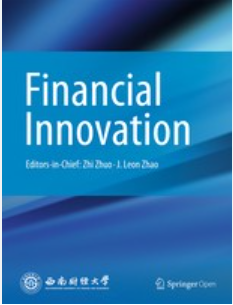商业周期与股票收益中的羊群行为:理论与证据
IF 7.2
1区 经济学
Q1 BUSINESS, FINANCE
引用次数: 0
摘要
本研究解释了经济不确定性作为商业周期与投资者羊群行为之间桥梁的作用。从表示股票收益演变的传统随机微分方程出发,我们提供了一个简单的理论模型,并进行了实证论证。具体而言,国内生产总值增长率和幂律指数分别被用作商业周期和羊群行为的代理变量。我们发现,经济衰退时的羊群行为比经济繁荣时更强。我们将此归因于经济的不确定性,这种不确定性导致了股市中强烈的行为偏差。这些发现与量子模型的预测一致。本文章由计算机程序翻译,如有差异,请以英文原文为准。
Business cycle and herding behavior in stock returns: theory and evidence
This study explains the role of economic uncertainty as a bridge between business cycles and investors’ herding behavior. Starting with a conventional stochastic differential equation representing the evolution of stock returns, we provide a simple theoretical model and empirically demonstrate it. Specifically, the growth rate of gross domestic product and the power law exponent are used as proxies for business cycles and herding behavior, respectively. We find stronger herding behavior during recessions than during booms. We attribute this to economic uncertainty, which leads to strong behavioral bias in the stock market. These findings are consistent with the predictions of the quantum model.
求助全文
通过发布文献求助,成功后即可免费获取论文全文。
去求助
来源期刊

Financial Innovation
Economics, Econometrics and Finance-Finance
CiteScore
11.40
自引率
11.90%
发文量
95
审稿时长
5 weeks
期刊介绍:
Financial Innovation (FIN), a Springer OA journal sponsored by Southwestern University of Finance and Economics, serves as a global academic platform for sharing research findings in all aspects of financial innovation during the electronic business era. It facilitates interactions among researchers, policymakers, and practitioners, focusing on new financial instruments, technologies, markets, and institutions. Emphasizing emerging financial products enabled by disruptive technologies, FIN publishes high-quality academic and practical papers. The journal is peer-reviewed, indexed in SSCI, Scopus, Google Scholar, CNKI, CQVIP, and more.
 求助内容:
求助内容: 应助结果提醒方式:
应助结果提醒方式:


